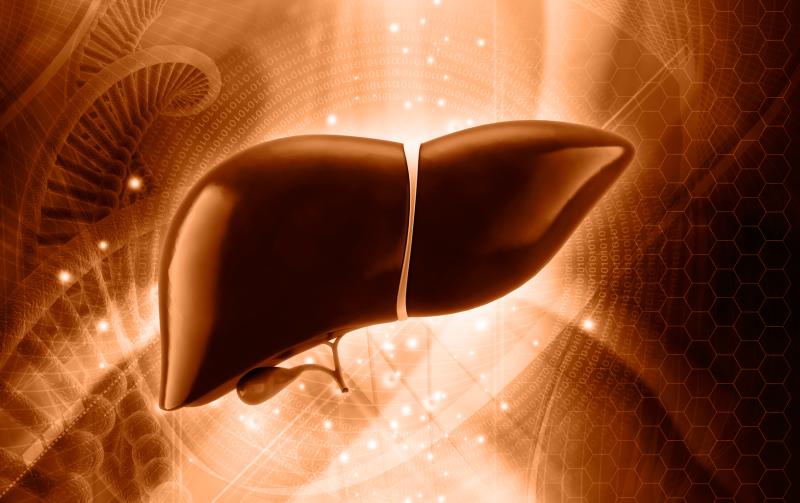
Epeleuton, a second‐generation synthetic n‐3 fatty acid derivative of eicosapentaenoic acid, falls short of improving alanine aminotransferase (ALT) or liver stiffness in patients with nonalcoholic fatty liver disease (NAFLD), according to a study. However, it has potential for cardiovascular risk reduction by simultaneously targeting hypertriglyceridemia, hyperglycaemia, and systemic inflammation.
Ninety-six adult NAFLD patients (28.1 percent had diabetes) who were overweight or obese (BMI 25–40 kg/m2) were randomized to receive epeleuton 1 g, 2 g, or placebo daily for 16 weeks. Patients in the placebo group had higher serum ALT levels (median, 70.5, 74.0, and 96.5 U/L, respectively) and liver stiffness (median, 8.16, 7.90, and 8.42 kPa), while those who in the 2-g group had higher triglycerides (median, 146.0, 242.0, and 150.0 mg/dL).
The trial did not meet its primary endpoints of improvements in ALT and liver stiffness at week 16. However, there were noticeable effects on cardiometabolic markers. Specifically, epeleuton 2 g yielded significant declines in triglycerides, very‐low‐density lipoprotein, and total cholesterol levels without increasing low‐density lipoprotein cholesterol.
Also, the higher dose produced a greater decrease in HbA1c compared with placebo (−0.4 percent vs −0.08 percent; p=0.026), despite a low mean baseline HbA1C (6.3 percent). Among patients with baseline HbA1c >6.5 percent, epeleuton 2 g reduced HbA1c by 1.1 percent (vs −0.26 percent with placebo; p=0.047).
There were consistent dose‐dependent reductions seen in fasting plasma glucose, insulin, and insulin resistance indices. Finally, epeleuton 2 g decreased circulating markers of cardiovascular risk and endothelial dysfunction.
Overall, the drug was well tolerated, with a safety profile similar to placebo.
More studies are needed to validate the findings and investigate the full therapeutic effects of epeleuton for treating NAFLD, hyperglycaemia, dyslipidaemia, as well as for preventing ischaemic events.